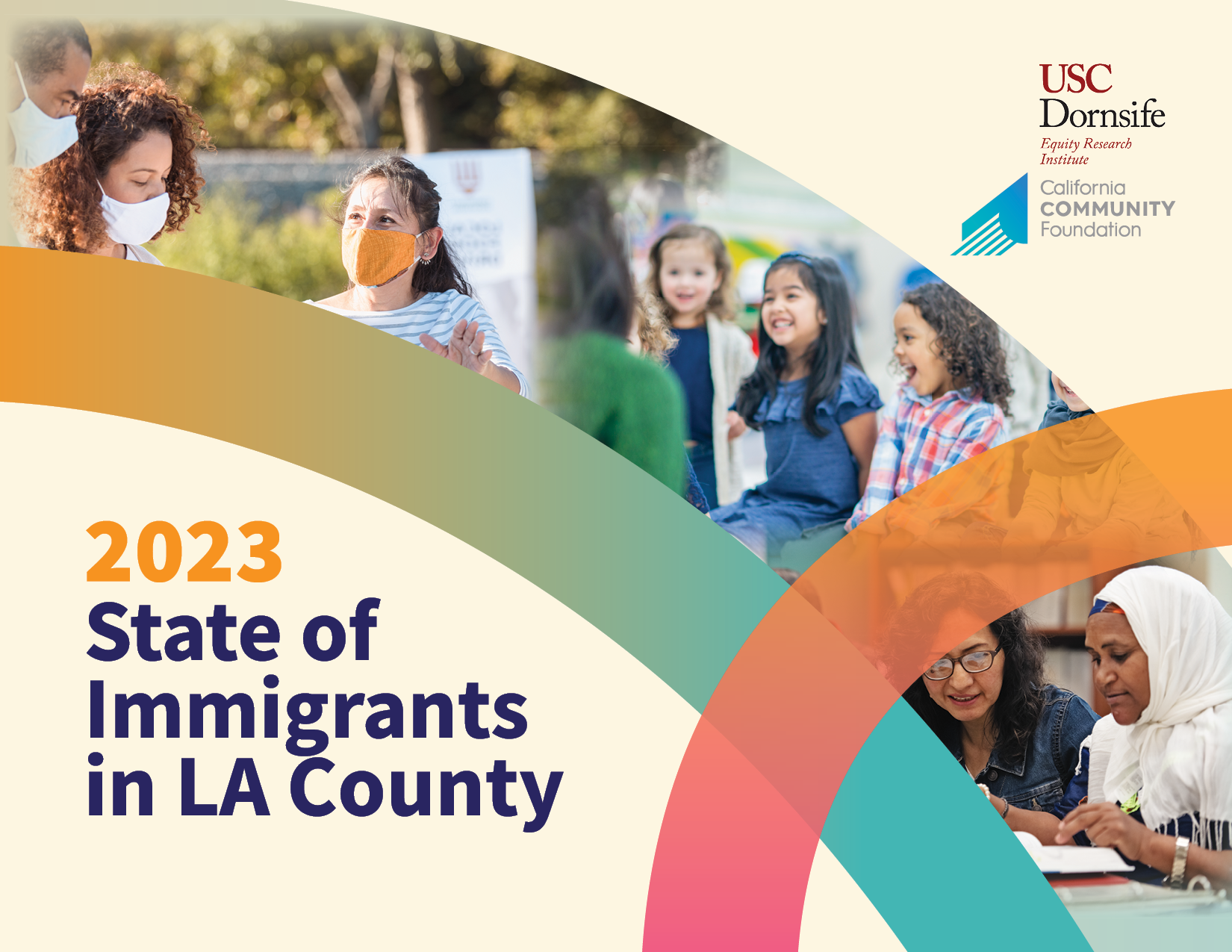
Funded by the California Community Foundation
ERI Project Team: Cynthia Moreno, Sabrina Kim, Dalia Gonzalez, Khia Duncan, Paris Viloria, Vanessa Garcia, Rhonda Ortiz, Siyue Lena Wang, Austin Mendoza, Dawy Rkasnuam, Manuel Pastor, Thai Le, Jeffer Giang, Justin Scoggins, Edward-Michael Muña, Vanessa Carter Fahnestock, Jamie C. Flores, Eunice Velarde Flores, Gladys Malibiran, and Lauren Perez
In the throes of changing immigration flows and stalling federal policy, L.A. County finds itself in between great opportunity and great challenge. On one hand, the end of Title 42—that ended expulsion of asylum seekers at the southern border—was met with stricter policies that carry potentially harsher consequences for migrants forced to leave their homes. On the other hand, we have witnessed historic immigrant-led wins such as Medi-Cal expansion for undocumented immigrants at the state level and implementation of Represent LA, a comprehensive legal and social service program in L.A. County. While we operate under an often hostile federal context—that continues to fail on delivering comprehensive immigration reform—state and local initiatives have achieved life-changing wins for immigrant communities.
This year’s State of Immigrants in L.A. County (SOILA) captures the work of immigrant-serving institutions—alongside quantitative data on how immigrants are faring—and shares recommendations for further work directly from the field. SOILA 2023 details how Los Angeles can continue to lead on immigrant inclusion with racial equity values at the forefront by exploring nine issue areas impacting immigrant communities. We offer recommendations to push for a new phase of immigrant inclusion that utilizes investments to their fullest capacity and pushes for more to ensure that immigrant Angelenos can Achieve their potential; feel Empowered to engage in civic life; and experience a sense of Welcome in our region.
SOILA 2023 finds that efforts to help immigrants and their communities thrive are successfully becoming more expansive and inclusive, as is the case in budget conversations and the increased access to broadband. But advocates shared the need for more conversations at the county level to include diverse perspectives in decision-making processes, such as Indigenous groups and newer refugee and asylum seekers. A key component of inclusion is language access. Data shows that 28% of all immigrant households were linguistically isolated. When disaggregating by immigration status, undocumented households were most likely to be linguistically isolated at 37%, demonstrating the need to ensure all immigrant Angelenos have access to adequate translation and interpretation services.
In just over a year, we will face another presidential election cycle that will reference immigrants as targets for both promises and attacks. Pro-immigrant leaders often respond by pointing to immigrant contributions—and we agree that there are many. The challenge is that this sets up: 1) a harmful “good” vs “bad” immigrant narrative that casts some immigrants as flawed or undeserving when, in reality, we all inherently have value; and 2) promotes a view of “integration” that has immigrants “hopscotching” over other marginalized groups to reach a better spot in society. Instead, we need an approach that places immigrant inclusion within the broader fight for racial justice. Having a strong coalitional infrastructure that supports equity for all, including immigrants, will help our region respond to any changing federal context.
Many charts from SOILA 2023 can also be found in the California Immigrant Data Portal.
For more data and downloadable charts, visit immigrantdataCA.org



